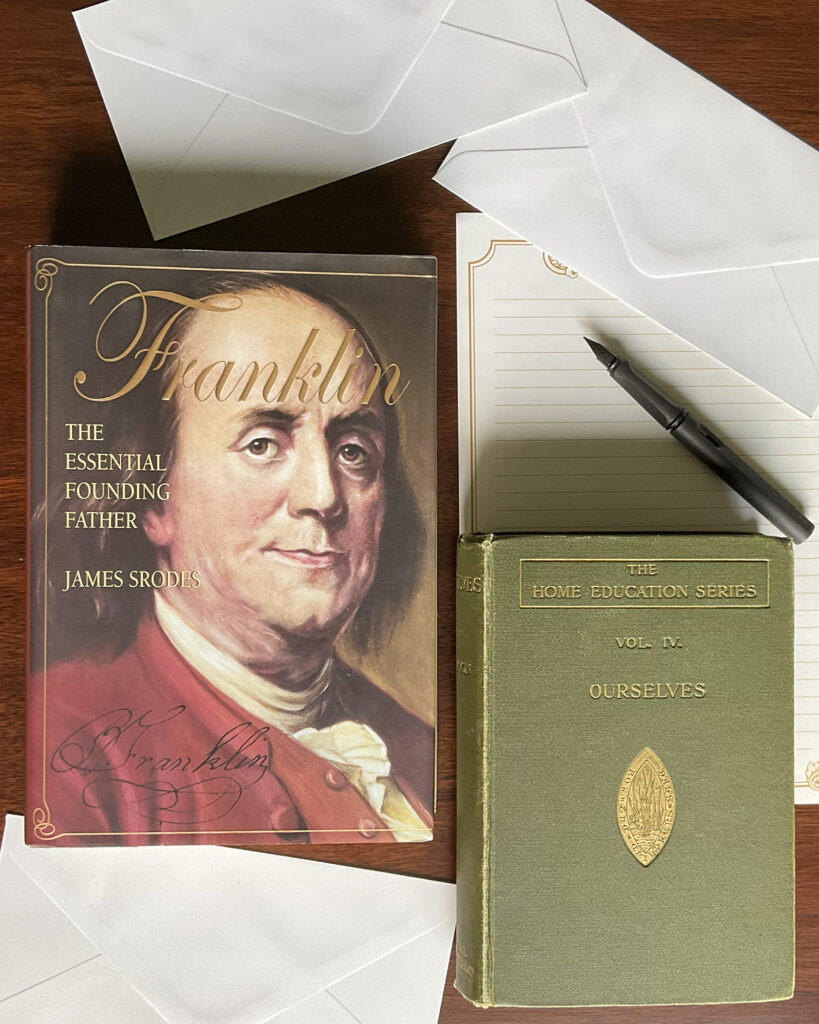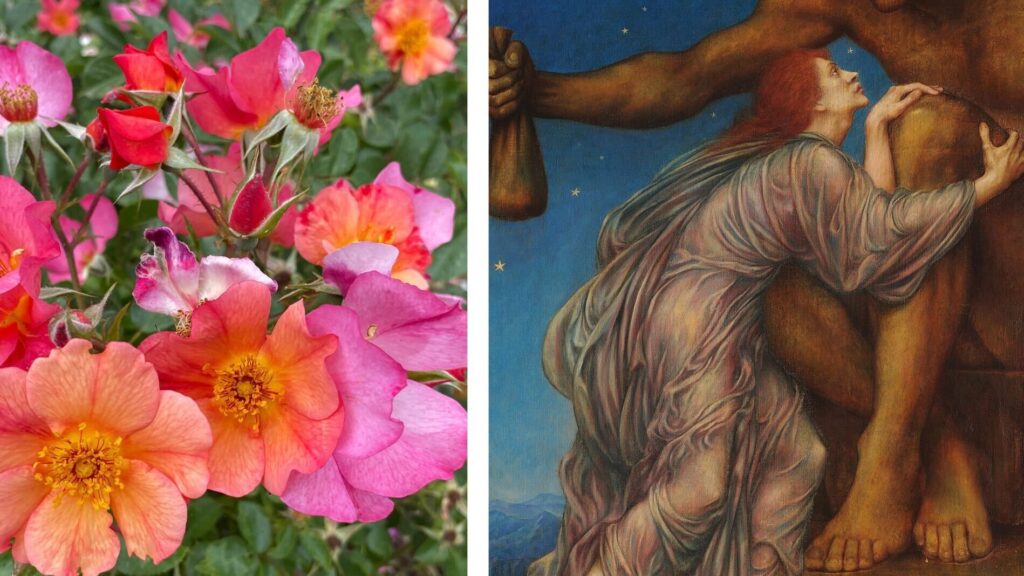The CMP Review — Week of August 25
August 25, 2025

“Age will not sever our love from Nature: but rather will the ties which draw us to her be strengthened: becoming of sacramental significance, so that she becomes to us an outward and visible sign of an infinite love enfolding our lives; filling our hearts with lofty hopes and high courage; till the symbols are replaced by realities; and the heart that was in Tune with the Universe finds itself in Tune with God and Heaven.”
— Alfred Thornley, PR19, p. 729
@artmiddlekauff
📷: @dave_stillwell
August 26, 2025

What exactly is the purpose of narration? Do we use the author’s words or our own words? Are we simply absorbing content which enables further discussion? Or is some kind of critical thinking involved?
And what is meant by a liberal education? Does liberal mean broad or free? Does it mean for some or for all?
And what would happen if the Honorary Secretary of the PNEU were to visit the United States of America … in the Roaring Twenties?
Amazingly these three tantalizing questions were all addressed in the synopsis of an important conference in 1924. Read or hear the answers here.
@artmiddlekauff
August 27, 2025
Have you found planner peace?
2026 planners historically release on September 1st and academic planners have recently hit the market.
My current thought is to continue with
1) the Common Planner from Sterling Ink (currently in this leather cover).
2) Continue drafting my weeks with this undated spread from Cloth & Paper.
3) I’m also excited to try this beautiful quarterly planner that focuses on God’s plan, prayer, and habit formation from Coram Deo Planner (founded by CM mama, pastor’s wife, and artist @min.j.hwang).
Let me know your planner plans!
@rbaburina
August 28, 2025

Benjamin Franklin’s 1758 The Way to Wealth includes this maxim: “Never leave that till tomorrow, which you can do today.” The rule is preceded by a rationale: “One today is worth two tomorrows.” I grew up hearing that rule at home and at school, and I remember that as a young person it did not so much inspire me as make me feel vaguely guilty.
Modern readers of Charlotte Mason’s Ourselves do a double-take on page 171 when she writes, “Never do to-day what you can put off till to-morrow.” Was this a misprint? Or a joke? (She does say, “It has been amusingly said…”) But as we read on, we are led to the inescapable conclusion: Mason was dead serious.
The inversion of Franklin’s rule, explains Mason, really means “putting first things first.” Today is for the business of today. The rationale for her inverted rule is actually the same as for Franklin’s original: “One today is worth two tomorrows.” Only today has the moral imperative of the present moment. Only today has the opportunity to shape all our tomorrows.
Charlotte Mason’s rule of putting first things first is just one component of her advanced and effective method of time management. It’s worth studying and adopting as adults. And even more so if we can pass it on to our children.
@artmiddlekauff
August 29, 2025

This fun caterpillar was found by a sweet toddler on our street today!
The laurel sphinx moth caterpillar.
A group of us got to spend some time looking carefully at it while it walked across the gravel road.
It has these mesmerizing diagonal lines on each segment of its body which almost look like gills!
I don’t think I have ever seen a caterpillar with a spiky horn like this. Have you?
@antonella.f.greco
August 30, 2025
August Nature Journal Flip-through
I’d had so many plates spinning in my life that I took some time off from nature journaling earlier this summer.
Bad mistake.Not only is nature journaling a blend of science, poetry, art, and writing, it’s also a form of therapy. I’m happy to be back to it.
@rbaburina
August 31, 2025

“It is a common idea,” writes J. R. Dummelow, “that virtue shades off into vice by imperceptible gradations, and that the majority of men are neither bad nor good. Our Lord pronounces absolutely that in the last resort there are only two classes of men, those who are serving God, and those who are serving the world.”
Jesus said, “No servant can serve two masters.” But what if one of those masters — money — is required to live? Charlotte Mason explores this challenging idea in her unpublished poem “How to make use of Mammon.” You can read or hear it today here.
@artmiddlekauff
🖼️: The Worship of Mammon by Evelyn De Morgan